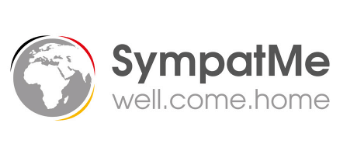Living and studying in Germany
What’s so great about studying in Germany? An outstanding range of educational opportunities prepares you specifically for your future working life. Here you can concentrate fully on your goals and develop freely.
Study in Germany: This is a good decision if you want to gain a foothold in the international job market. German universities are highly respected worldwide, and the degrees you can earn in Germany also enjoy a good reputation in companies.
Why You Should Consider Studying In Germany
The international networking of German universities with many other partner universities worldwide is excellent. Every year, thousands of German students have the opportunity to live and learn in another country for a while. However, it should be the same the other way around. Therefore, the German universities and universities of applied sciences are anxious to provide enough places for international students and take good care of them in other questions about their stay abroad.
But what does Germany offer to students from all over the world anyway? Although Germany is a relatively small country, its history and current role in the world community are unique. Germany holds an important position in Europe, but it is also considered a significant trading partner and player internationally.
German workers from all disciplines are in demand worldwide and have good chances to get a job in an international company in different countries. Germany itself also represents a good and attractive working country later on.
These circumstances are mainly due to the sound German education system.

A GLIMPSE INTO YOUR PROFESSIONAL FUTURE
The practical orientation gives you the chance to know the working world early. In this way, you not only learn a lot about your professional future but also take your first career step during your studies. To be continued – perhaps in Germany as well? After graduation, you can apply for a residence permit to look for a job for 18 months. Germany offers you good career opportunities: Because the country wants to secure its economic strength for the future, its companies are increasingly dependent on young skilled workers.
Whether you’re in a metropolis or more remote areas of the country, you can move freely and feel safe here. Stability shapes Germany’s image in the world just as much as it does in life in the country itself. In a parliamentary democracy, the state’s power emanates from the people – today, citizens can rely on fair elections and legal security.
After years of division between two German states, the German Democratic Republic (GDR) and the Federal Republic of Germany (FRG), reunification occurred in October 1990. Since then, the entire country has been known as the Federal Republic of Germany.
Germans have profound memories of their country’s eventful history. That is why they value, among other things, the secure environment that the country offers. As the fourth-largest economy in the world, Germany also cultivates international relations. Today, 10.6 million people from other countries live in the country. International students also find a safe environment – in the big city and the village.
The shortcut to a career
Studying and working simultaneously is one of Germany’s unique features: At universities of applied sciences, theory and practice go hand in hand. Some also offer what is known as dual studies: This allows you to gain extensive theoretical knowledge at the university and practical experience in the company at the same time. Some models even offer you the opportunity to simultaneously earn a bachelor’s degree and complete vocational training.
In Germany you can be an become whoever you want
Colorful, cosmopolitan, and diverse: in Germany, you can be and become whoever you want – regardless of your gender, origin, sexual orientation, religion, and personal preferences in leisure and study. Whether at University or in bars and clubs, museums, cinemas, and theaters: Germany welcomes you with open arms – here, you can focus on your goals without worry.
What suits me? The answers to this question are as varied as the people. In Germany, you can set your priorities in many courses of study, and you decide independently and on your responsibility.
Germany offers you the opportunity to try things out and find out where your strengths lie. With your degree, you will have excellent options on the job market – internationally and in Germany: the economy offers a wide range of career opportunities that suit you and your goals.
The Universities
The German universities and the obtained degrees are recognized worldwide and show the employer that you imparted a solid primary education and in-depth detailed knowledge. Practice in studies also plays a significant role in Germany. Internships are mandatory in many degree programs and recommended in all. The broad industry and especially the centers of the large cities offer numerous opportunities to get a taste of a wide variety of companies and fields of work during these internships.

Depending on which region of Germany you choose, there are numerous activities and trips you can take in your free time to get to know the country better. Germany is also a perfect jumping-off point for touring all of Europe for those with more time and a slightly larger budget, and you can get to know several countries without too many travel expenses.
In Germany itself, you can find the sea and the beaches of the North and Baltic Sea, culturally and historically valuable cities or buildings, and winter sports areas in the south. It will not be boring next to your studies.
The study itself has been changed in Germany by the Bologna reform to the Bachelor and Master system. The first degree achieved is the Bachelor’s degree, after which one can voluntarily complete an in-depth or supplementary Master’s degree. Both are independent and recognized degrees.
German universities also have an excellent international reputation due to their high research focus. Research funds provided by the state make it possible to explore new areas and learn in direct practice. The courses of study are also often considered more difficult than in other countries, but this naturally enhances the reputation.
New opportunity: distance learning in Germany
Distance learning in Germany is becoming more and more popular every year. In Germany, most universities offer various distance learning programs. In contrast to the classic study, with the online study, you are exempt from lectures at the university, so you do not have to appear on-site, but you can study from the comfort of your home and arrange your studies in a way that best suits your everyday life.
Bachelors Degree study
With a Bachelors degree, students achieve an academic degree after 6-8 semesters, which gives them access to the job market. The so-called Bachelor’s degree is the first stage of the Bachelors degree-Masters degree, and only those who want to expand their expertise further add a masters degree.
The idea behind the level system is to improve professional qualifications, increase student mobility and shorten study times. By awarding credit points for academic achievements, courses are taken at another university (in Germany or another European country) can also be easily recognized.
Master Degree in Germany
Range and structure of masters degree programs in Germany
In Germany, you are spoiled for choice. The land of ideas has over 400 universities with a total offering of over 8000 master’s programs. Master’s programs are still a relatively recent phenomenon in German higher education. While teacher training programs have already been restructured in numerous German states, state examination programs are not within the control of individual universities. However, lawyers and physicians, for example, also can continue their education with some master’s degree programs. The Master’s program in Germany usually lasts three to four semesters. You don’t always have to study full time because many universities also offer part-time or part-time Master’s programs. This way, you can gain valuable work experience while continuing your education.

Where to study for a Master’s degree in Germany?
Studying in Germany is relatively inexpensive compared to other countries, as tuition fees have been abolished in all German states. However, this does not mean that choosing the right student city for your Master’s degree in Germany is easy. Whether you’re more of a big-city type or drawn to smaller towns, you can find Master’s degree programs lists in the individual federal states online. Perhaps your favorite student city is also included!
English language study programs in Germany
One of the reasons Germany has been the first choice for over 370,000 international students is the opportunity to study in Germany in English.
If a German degree is what you desire, but your excitement wore off, and you thought you needed to learn German from scratch, fear not. You still have other options.
German universities are fantastic and work to provide optimal conditions for incoming students to facilitate their studies in keeping with their global perspective.
One of these conditions is the growing number of degree programs taught in English.
Since degree programs in German are more common for some, finding those offered in English can be challenging. Careful online research is time-consuming and often leads you astray. If this has been the case for you, we are here to help.
Where can I study in an English-language program in Germany?
You should clarify: If you want to pursue an undergraduate degree at a public university in Germany, you will be hard-pressed to find a course in English, as the absolute majority of them are taught in German.
One of the first questions that come to mind is which universities offer higher education in English. No one wants to choose a university just because it provides study programs in English, but it also considers the quality of education they will receive.
One way for you to do this is to conduct online research by checking university websites to find out if they also offer English study programs. To ease this burden for you, we have created a list of universities that provide the opportunity to study English in Germany.
Here are some of the best universities in Germany that offer degree programs in English:
- Munich University of Technology
- University of Göttingen
- Max Planck Institutes
- Free University of Berlin
- Dresden University of Technology
- Munich University of Applied Sciences
- University of Bonn
- RWTH Aachen University
- HTW Berlin
- Bremen University of Applied Sciences
- Mannheim University of Applied Sciences
- Karlsruhe Institute of Technology
- Berlin International University of Applied Science
- Saarland University
- Frankfurt School of Finance & Management
- University of Kaiserslautern
- University of Hamburg
- University of Ulm
- HHL Leipzig Graduate School of Management
- University of Bayreuth
- WHU-Otto Beisheim School of Management
- University of Stuttgart
- Technical University Berlin
- TU Darmstadt
- University of Hohenheim
- University of Erfurt
- University of Freiburg
How do I find an English-language degree program in Germany?
Information on this query is readily available, but it is distributed over the Internet and seems to take time to solve the puzzle. Once you’ve chosen a University you’d like to graduate from, you have to launch their website and check if they offer a course in English at that particular University.

However, if you haven’t decided which University you want to enroll in, we’ve created a complete list of courses where you can study English in Germany to make your online research more accessible.
This list is easy to navigate, as you can narrow down the list of degree programs based on your academic level. After you have derived suitable degree programs, you can review their modules, evaluate whether they seem particularly interesting, and decide which ones fit your long-term academic goals and budget constraints.
What is the university entrance qualification (HZB)?
The Hochschulzugangsberechtigung (HZB) is one of the most critical documents you need for admission to a German university provider. It confirms the equivalence of your foreign educational qualification with the German Abitur.
If your previous education is not equivalent to an HZB, you must take a recognition test, and it is only relevant if you also meet other university admission requirements.
What information should be included in the resume?
If a resume is required, you must include, in chronological order, information about your previous formal and informal education, internships, employment, and national service.
It must also include information about your skills and other unique talents. Formal education must consist of information on schools and universities where you studied and dates of study and graduation.
Which university entrance qualifications are recognized?
To study in Germany, students must have a higher education entrance qualification than required for university in their home country. It applies to applicants from EU countries. Applicants from non-EU countries should contact the University’s International Office at which they wish to study to check their university entrance qualifications. If the certificate from the country of origin is not recognized, the route to German universities is via a so-called Feststellungsprüfung (assessment test). Study colleges are offered throughout Germany to prepare students for this examination.
Those who want to bypass this examination can begin their studies in their home country and then, for example, apply to a German university after completing their basic studies and enter directly.
It is also possible to attend a preparatory course in Germany.
What is there to say about admission restrictions at German universities?
As an approximate guideline on application deadlines, the same applies to applicants from EU countries as prospective German students: most degree programs in Germany start in the winter semester. The application deadline for “old high school graduates” is May 31, which applies to degree programs awarded through Hochschulstart. hochschulstart.de coordinates the awarding process for degree programs with nationwide admission restrictions: Medicine, veterinary medicine, pharmacy, and dentistry. The deadline for courses of study subject to internal admissions conditions at universities is usually July 15. For non-restricted admission programs, you can assume mid-September.

Valid language certificates for studying in Germany
The following language certificates are recognized by German Universities:
- TestDaF level IV. For passing TestDaF, test for German as a foreign language for foreign students in all areas.
- DSH certificate II or III. For passing the DSH test, the German language test for the admission of foreign study applicants.
- Placement test at the end of institutional preparation courses.
- DSD level II certificate. Language Diploma of the Standing Conference of Ministers of Education and Culture, Level II.
- Goethe certificate C2. You have passed the Goethe level C2 test.
- Telc Deutch C1 or B2 higher education certificate. For passing the Telc C1 or B2 college exams.
Send one of the following certificates to prove English language proficiency:
- Official TOEFL test score report. Required scores: IbT-88, Pbt-66.
- Official score report of the IELTS test.
- Required group score in IELTS Academic must be 6.5 or higher.
- Certificate of Advanced English from Cambridge A, B, or C
- Along with Cambridge Proficiency English Certificate A, B, or C
Alternative forms are accepted on an exceptional basis.
Certain universities may have their own language requirements, and not all language tests and grades are accepted.
There are three ways in which you can prove sufficient language skills
Successful participation in the DSH “German Language Examination for University Admission of Foreign Study Applicants.” After being admitted to a course of study, foreign applicants take the DSH, which usually takes place about three weeks before the semester begins. The DSH is taken on-site at the university selected for the study.
A successful examination of the TestDaF is a central, standardized test for German as a foreign language that can be taken at many test centers in Germany and abroad.
Successful participation in the “Zentrale Oberstufenprüfung” of the Goethe-Institut proves sufficient language skills.
The “telc Deutsch C1 Hochschule” test is also recognized by universities and colleges in Germany as proof of language ability to study. It makes the test equivalent to the DSH examination, the TestDaF examination, and the Goethe-Institut test.
Is it possible to study in English?
Yes, there are individual courses of study offered in English at most universities and colleges, especially for internationally oriented Master’s programs.
An International Degree Program is also conceivable – well listed on the pages of the DAAD. Here, German language skills are acquired parallel to specialized studies.
University access for EU citizens
As a general rule, you must have a school-leaving certificate that entitles you to study at a university in your home country. EU citizens do not need a residence permit or a visa to study in Germany. However, since registration is compulsory in Germany and you will be staying in Germany for more than three months, you’ll need to register at your city’s Residents’ Registration Office after your arrival. You will have to prove that you can finance your studies yourself and have health insurance. In addition, even as an EU citizen, you can generally only study in Germany if you have sufficient German language skills. Nationals of the EEA states Iceland, Liechtenstein, and Norway have the same access rights as EU citizens.

Non-EU citizens apply directly to the universities or via uni-assist
Can I take an advanced degree program in Germany with a foreign degree?
Theoretically, this is possible; within the EU, there will be no problems due to the Bologna Process. If you have a degree from a non-European country, it is crucial to have your previous academic achievements recognized. Once this has been done, a classification is made within the degree program. The best thing to ask the International Office at the new University is which office is responsible for recognizing academic achievements.
Student visa for Germany
The number of foreigners choosing Germany to study abroad is growing every year. Most international students will likely need a German student visa from a German consulate in their country before coming to Germany to study.
You may not need a visa to study in Germany, depending on your country. However, you will still need to obtain a residence permit for more than 90 days of study after you arrive in Germany.
Types of Study Visas for Germany
You may be eligible for a German visa for degree programs and courses of study. It includes Bachelor’s, exchange, doctoral, or postgraduate studies, including participation in a pre-academic measure or a non-academic German course.
For what activities can I obtain a student visa for Germany?
Non-academic language courses. A 3 to 12 months course with at least 18 hours of classes per week. The course must not be designed to prepare you for further study.
Pre-academic measures. A course of more than three months that prepares you for full-time study.
Pre-academic German courses. Before taking one of these recognized pre-academic examinations, participation in a preparatory course must be a university requirement before admission to graduate study.
Preparatory introductory course “Studienkolleg.” This course must prepare you for the assessment test. If you pass this test, you must have a recognized university entrance qualification. (This applies if your foreign Abitur is not recognized in Germany).
Propaedeutic study courses. These courses must provide language and academic skills and specific knowledge of Germany’s educational system and methodology. They must be held by the educational provider where you are studying.
Participation in a mandatory pre-study internship
Participation in an internship must be a prerequisite for admission to the program, i.e., At the University of applied sciences.
Do I need a visa for studying in Germany?
You will need a Schengen visa for studies lasting up to 3 months.

You will need a German national visa for studies lasting longer than three months.
If you enter Germany on a national visa, you will need to extend your stay by obtaining a German residence permit for study from the Foreigners’ Office. Get this done while your entry visa is still valid.
First, find out if you need a visa to study in Germany as an international student, and if so, which permits you need to apply for the duration and type of study you plan to do.
When do I need a visa?
A visa is required for all applicants from non-EU countries (a few exceptions such as Switzerland, Australia, Canada, New Zealand, and the USA). A visa for a student is different from a tourist visa and must be applied for separately. Responsible are the German representations (embassy/consulate) abroad.
For international students and study applicants, there are the following types of visas:
- a language course visa (be careful, this is not a visa for study purposes and cannot be converted later)
- A study applicant visa for three months (this visa is given to an applicant who has not yet been admitted to the University. If the admission has been successful, this visa must be converted into one for study purposes at the Foreigners’ Registration Office at the University).
- a visa for study purposes, which is valid for one year (this visa is only granted to those who can prove admission to a university or a preparatory course and sufficient financial security)
- Do I need German language skills to study in Germany?
- You must always prove sufficient German language skills for studying in Germany, and it does not apply to applicants who have completed their Abitur at a German school abroad.
There are three types of student visas for Germany that you can apply for:
German Student Visa. It is the standard student visa for international students admitted to a German university who are ready to begin their studies full-time.
A student Applicant Visa for Germany. It’s required if you need to be in Germany to apply in person for university admission. However, it is not permitted to study in Germany, and it is only valid for the university application process.
German Language Course Visa. You need this visa to take a German language course in Germany.
Requirements for the German Student Visa
The main requirements during your student visa process in Germany are:
- Visa Application Documents
- Correctly completed and signed national visa application form
- Your valid national passport
- Two photocopies of your passport
- Your birth certificate
- Your marriage certificate
- Birth certificate of your child
- Your most recent passport photo
- Previous Schengen visa
- Previous German residence permit
- Proof of financing. (One of the following)
- € 10,332 deposit confirmation of a blocked bank account with a bank provider.
- Link to Blocked Bank Account Blog
- Declaration of commitment and proof of income records and financial assets of your parents.
- Letter of commitment from a German Verpflichtungserklärung. This letter is filed with the Aliens’ Registration Office by a German resident who will cover your expenses during your studies.
- Certificate of Scholarship. It must show the amount of the costs it will cover.
- Proof of admission to the University
- Confirmation of entry in the admission letter. Issued by a recognized university provider in Germany, showing when you will begin your studies and the language of instruction.
- Evidence of conditional admission “Bedingter Zulassungsbescheid” and a confirmed intensive course “Intensiv-Sprachkurs”. This letter must show that you are conditional and had confirmation to attend an intensive language course before being granted final admission to the University. The course must last more than six months, with at least 18 hours of instruction per week.
- Proof of conditional access to the University
- A receipt for the language course, accompanied by a confirmed place in the course. A Payment must be made for at least three months
- Confirmation of admission to a college of studies
- Proof of conditional admission to the University
- An admission confirmation as an applicant
- Communication with the University regarding admission requirements
- Evidence you’ve been confirmed as a participant in the course
- Proof of your previous education
- Original high school diploma
- Student health insurance
- University entrance qualification
- Certification of German or English language proficiency

The German Student Applicant Visa
You must apply for a German student applicant visa if you want to apply for university admission in person.
This visa is issued for three months but can be extended for six months upon arrival in Germany.
Suppose you receive your expected letter of admission within six months as part of a full-time study or university preparatory program. In that case, you can transfer to a German student visa or residence permit for study.
How do I apply for a student visa to Germany?
The application process can be confusing for many international students, and procedures vary from country to country.
How do I apply for a German student visa?
Find the nearest German embassy or consulate. You can use Google to get more information about the requirements and how to set up a visa. An official website with address and contact information is available online for all official German missions in other countries.
Check the requirements and procedures. Once you have found the German Embassy website, you can check the student visa sections for all requirements for your country and the guidelines for setting up a visa appointment. Be sure to carefully review all of the information provided (especially the required documents) before making a visa appointment.
When you are ready, you should set up a visa appointment by following the steps outlined on the German Embassy website in your country. In some countries, you should request your visa appointment a few weeks in advance, as there may be many visa applications for that embassy, and they may take longer to reach you. Timing is critical; sometimes, all slots for student visa applications can be completed.
Have all visa application documents ready. Once you have confirmed your visa appointment date, you should double-check all your documents to ensure you have everything together. You can do this yourself without needing to pay fees to an agency.
Prepare yourself for the visa interview
Pay the visa application fee and bring the receipt to your visa interview. This fee will not be refunded if your visa is denied. You will need to check the exchange rate of your country’s currency and pay the exact amount. You should prepare in advance for your interview. Here are some of the most common questions and answers about the student visa. After your consultation, you will receive the official response on whether your visa was approved or denied.
When is the best time to apply for a student visa to Germany?
The best time to apply is immediately after you have received your university admission letter and after you’ve secured the necessary funds to live and study in Germany.
It is one of the essential requirements. If you have not yet received an official scholarship, you must provide proof of financial means by other means, such as depositing the funds into a blocked account in Germany.
How long is the Student Visa Processing Time in Germany?
It usually takes up to 25 days for your application to be processed. The processing time varies from country to country and the German embassy you are applying to.
All other German student visa applications are usually processed within three months.
How to get a residence permit for students in Germany
Find your permanent home. During the first week after you arrive in Germany on a student visa, you will need to find permanent housing.

Register with the Residents’ Registration Office. Immediately after that, you must register such a home address with the Residents’ Office. When you register, you will receive confirmation of the registration certificate.
The following documents are required for registration as an international student in Germany:
- Your valid national passport or identity card. You must have a valid visa if you are a citizen with a visa regime.
- Rental contract
- Confirmation of your residential address issued by your landlord of the rented place.
- Register for studies
You must officially enroll at the university to participate in studies and access the University’s resources. It must be done by the enrollment deadline, within the period communicated to you in your admission letter.
This process, called enrollment, is submitted by submitting a list of documents to the Registrar’s Office at the university where you are studying. In addition, you will be required to pay a semester fee before receiving your ID card and password, and lastly, your student ID card.
Required documents to enroll as an international student for university studies in Germany are:
- National passport/ID card. You require a valid entry visa for studying.
- Confirmation of admission in studies
- German university entrance qualification. Or an equally recognized qualification that allows you to begin studies in Germany
- Recent passport photos
- Health insurance for students
Note: The International Office at your University is the key address where you can get information about your studies and where to live.
Apply for a residence permit
Since you have registered for studies, you will need to extend your visa by applying for a residence permit for studies as a resident.
Required documents for a residence permit application for studies in Germany:
- Correctly completed application form for a residence permit. The original name “Antrag auf Erteilung eines Aufenthaltstitels”.
- Your national passport/identity card. It must show that you have a valid entry visa; if you have entered a visa
- Documents showing your permanent address in Germany
- Confirmation of registration
- Rental contract
- Letter from the landlord confirming your permanent address.
- Recent passport photos
- Proof of financial existence. (Send the same evidence you submitted when applying for the visa).
- Proof of admission to study. (For example, certificate of admission, confirmation of admission, or evidence of conditional admission to study).
- Money to pay the application fee. The application cost is 56-100 euros for initial applications and 49-96 euros for residence permit renewal. For the Turks, it is 28.8 euros.

Education and studies: What financial burden parents have to reckon with
What does a course of study cost, and how can parents finance it with as little as 100 euros a month.
More young people are now starting University than vocational training. There are 2.8 million students in Germany. That costs: Alongside private pension provision, studying is one of the most significant financial burdens in the lives of many parents. On average, it takes between 36,000 and 75,000 per child. How can they finance this investment?
Young people have never been as well educated as they are today. Almost four out of five high school graduates study, around two-thirds of students study at universities and one-third at universities of applied sciences.
At the latest, after graduation, the question arises: What now? Study abroad, stay at home, do an apprenticeship -there are many options to choose from. One wants to combine practice and internship and decides on a dual study program. The other goes to a university in a new city.
For parents, a solid education is a necessary foundation that they want to give their children for an excellent start in their working lives. But one thing is clear: The training period is a burden on the family budget. For many parents, the beginning of their children’s independence is a considerable cost.
What does it cost to study?
Even though there are no tuition fees at state universities in Germany, the running costs add up. The semester fee of 150 euros to 250 euros is just the beginning. Then there are travel expenses, moving costs, food expenses, the deposit for the shared room, and the first rent.
According to the German Student Union, a course of study lasting ten semesters adds up to 36,000 euros to 75,000 euros per child. Monthly, parents should expect to pay around 596 to 1,250 euros for living and studying. Unmarried students with their first own households need an average of 918 euros per month or approximately 55,000 euros for ten semesters.
Housing costs vary greatly whether your child lives in a large university city or chooses a relatively small university in a less crowded city. A room in a dormitory costs between 200 and 400 euros, a room in a shared apartment between 300 and 500 euros, and a personal apartment costs at least 400 euros.
In addition to the rental costs, your offspring will also need money for living expenses. From food to clothing, books for university and leisure activities to sports, cell phone contract, and going out. Depending on your lifestyle, you can add another 200 euros. In addition, you will have to pay an average of around 100 euros for travel and 200 euros for food.
It can quickly become more expensive: If you want to study in a city with over a million inhabitants, you can expect to pay more than 500 euros a month for rent alone. Add extra private courses for the University or no permanent canteen food – and the costs are already more than 1,000 euros a month.
What does living and studying cost per month?
- Housing costs (rent and utilities) 264 – 912 euros
- Food 160 – 280 Euro
- Travel costs (public transport and car) 90 – 230 Euro
- Clothing 50 – 90 Euro
- Communication (telephone, Internet, GEZ, post) 40 – 80 Euro
- Learning aids 25 – 80 Euro
- Health insurance, medical expenses, and medication 0 – 180 Euro
- Leisure, culture and sports 60 – 250 Euro
- Costs per semester (per month, e.g., tuition fees) 25 – 200 Euro
Children older than 18 are entitled to maintenance. It is 735 euros per month for students, and it also corresponds to the Bafög maximum rate. So even if parents only want to finance part of their studies, they must support their child financially at this level in any case.
It adds up to around 25,000 euros for a bachelor’s degree of six semesters. For a master’s degree of four semesters, this adds up to almost another 18,000 euros.

What does the dual study program cost?
The dual study program combines practical training in the company with theoretical training at the University. Nine percent of first-year students choose this option today – twice as many as in previous years.
The good news is that, according to a survey of more than 2,000 dual students, the average monthly salary at the company is around 860 euros. Many companies that train dual students also cover the costs of the theoretical part in full or at least in part.
For those who have to pay for the theoretical part themselves, vocational academies or private universities cost 400 euros per month. At state universities, your child pays semester fees like other students.
The bad news is that students are still not financially independent. According to a survey, almost half suffer from a financial bottleneck – despite having a full-time job. Nearly 48 percent of respondents said they were not doing well on their salary, and thirty percent answered “yes, just about,” and only 22 percent of students said they were doing very well on their salary.
For parents, this means including other payments to their children in their planning. According to the survey, to cover the monthly costs incurred in dual studies, around 75 percent of the students surveyed ask their parents or family for additional financial support.
What does in-company training cost?
Collectively agreed training allowances rose to an average of 876 euros gross per month nationwide in 2017. According to Azubi-report 2017, trainees earn an average of 729 euros. But not everyone can live on this, the range of salaries is wide. It ranges from 400 euros to 500 euros for hairdressers, florists, or bakers to around 1,000 euros for bricklayers, mechatronics engineers, or clerks in finance or insurance. For very few trainees, this is enough to live on. Just under 40 percent receive support from their families.
If you want to finance your studies without bottlenecks, you should start planning early. The sooner you start with a suitable savings plan to build up assets, the lower the monthly burden during the savings period.
Provided you invest your money for ten years or more, it pays to take a calculable risk on the stock market. Shares are currently superior to all other savings products in the long term. Most Germans prefer to rely on savings books, building society savings, call money, or insurance. However, by doing so, they forego the potential return and can hardly benefit from the force of the compound interest effect.
A fund savings plan is particularly well suited, reducing fluctuations in value over a more extended period, even with riskier asset classes such as shares.
Example: If you invest 100 euros a month in a fund savings plan from the time your child is born, you will have saved an amount of just under 35,000 euros in time for the age of majority after 18 years. It is enough for a firm cushion on the education account. The calculation example is based on the assumption of a five percent return.
Please note that the specific risks depend on the choice of product. Capital market-related fluctuations in value and currencies cannot be ruled out and lead to losses.
What does it cost to study?
The answer to this question depends primarily on whether you live with your parents or run your household. Cost of living and expenses for study needs also vary depending on where you go to college and what you study.
Cash is on a table- Federal Employment Agency
Tuition fees do not have to be paid at the state or church-run universities in Germany. However, private universities usually charge tuition fees, and however, this does not make studying in Germany free of charge.
Usually, when enrolling or re-registering for each new semester, social contributions must be paid for the services of the student union, the student council, and, if applicable, for a semester ticket for public transportation. In some states, there are also administrative costs.
Information about the financial burden for students is provided by the Social Survey, which is conducted on behalf of the German Student Union.

In the current 21st Social Survey from 2017, it becomes clear that monthly expenses for rent and incidental costs place the most significant burden on students’ budgets. In this context, students living in a dormitory have the lowest fees (271 euros) for the average monthly rent, including incidental costs. Students with their own apartments have the highest expenses (up to 389 euros).
The 21st Social Survey identified 918 euros as the average monthly income available to students in 2016, although there is considerable variation in monthly income. Although their parents financially support the vast majority (86%), almost two-thirds (61%) of students contribute to financing living costs through their earnings from gainful employment alongside their studies.
Tuition fees
Although no German state charges general tuition fees or fees for first-time students, some states (Lower Saxony, Saarland, Saxony, and Thuringia) have long-term students or tuition accounts fees. Students who exceed the standard study period by two years or a study credit set by state law must pay up to 500 euros, depending on the state.
Some states also charge fees for a second degree, i.e., another undergraduate degree, and in some cases for part-time degree programs (e.g., in Bavaria).
Private universities sometimes charge high tuition fees, financed directly from this income.
Semester fee
All students must pay compulsory contributions, called semester or social contributions when they first enroll or re-register for the next semester.
These include the administrative contribution, the contribution for the student representation, the student union contribution, and the cost of a mandatory semester ticket, which allows the use of public transport at a reduced price or even free of charge. Which of the above-mentioned compulsory contributions are incurred and in what amount varies from University to University.
Studying with a scholarship
Many scholarships are not awarded due to a lack of applicants! Reason enough for studieren.de to introduce you to gifted students’ essential foundations and scholarships. With rising costs for studying, there is no need to point out the advantages of a scholarship. You will receive financial support, which, in comparison to BAföG, does not have to be paid back. Moreover, scholarship holders do not only receive financial aid. Summer camps, invitations to conferences, personal support from a trusted lecturer, alumni networks, and internships abroad also boost their studies.
The scholarships are provided by political parties, religious organizations, and corporations that want to demonstrate their social responsibility. Essential criteria for selecting applicants are economic situation, talent, grades, and social commitment.
Germany Scholarship
The income-independent Deutschlandstipendium supports exceptionally talented students with 300 euros per month. The federal government pays 150 euros, and the University raises the other half through private sponsors (e.g., companies, foundations, or private individuals). First-year students can apply directly to a university that offers the Deutschlandstipendium.
Funding for studies abroad
The German Academic Exchange Service (DAAD), an institution of the universities of the FRG, has the task of promoting international relations in higher education.
Therefore, the DAAD awards scholarships to promote education, training, and research to German and international students, graduates, trainees, younger scientists, and university teachers of all disciplines. In addition, the DAAD places and supports German academic teachers of all fields at foreign universities.
Information is available from the DAAD directly or from the foreign departments of the universities.
The nationwide organizations and foundations for the promotion of gifted students

Heinrich Böll Foundation
Schumannstr. 8, 10117 Berlin, Tel: 030-285 34 400, Fax: 030- 285 34 -409
Tel. office hours: Mon, Tues, Thurs, and Fri, 10:00-13:00, [email protected]
The technical colleges and universities of applied sciences. Outstanding academic or scientific achievements, socio-political commitment, and an active engagement with the foundation’s core values: ecology and sustainability, democracy and human rights, self-determination, and justice are expected.
Friedrich Naumann Foundation
Scientific services and promotion of gifted students
Karl-Marx-Strasse 2, 14482 Potsdam, Tel. 0331 / 7019-0, 0331 / 7019-188
Support for German students after the 3rd semester, international students after an intermediate academic examination, priority for applicants pursuing doctoral or postgraduate studies (deadlines May 31 and November 30).
Friedrich-Ebert-Stiftung e.V.
Department of Student Support
Godesberger Allee 149, 53170 Bonn,
Tel. 0228 / 883-0, 0228 / 883-396
Support for German students and students from developing countries, first degree and doctoral studies, and participation in the foundation’s seminars are encouraged.
Study Foundation of the German People
Ahrstraße 41, 53175 Bonn, Germany, Tel. 0228 / 82096-0, Fax 0228/82096-103
Support for German students at universities of science and the arts, including study abroad and doctoral studies; students and high school graduates can apply themselves but are often nominated by their teachers or instructors (deadlines for nominations: by July 15 of the year for high school graduates, by November 1 for students at universities of the arts and music, all others at any time).
Rosa Luxemburg Federal Foundation
Franz-Mehring-Platz 1, 10243 Berlin,
Tel. 030 / 44310-0, Fax 030 / 44310-222
The foundation awards scholarships to students and doctoral candidates committed to social justice, living democracy, and freedom of critical thinking.
Konrad Adenauer Foundation e.V.
P.O. Box 1420, Rathausallee 12, 53757 St. Augustin, Tel. 02241/246-0, Fax 02241/246-2508
Support for German and international students and graduates, seminar program accompanying studies for interdisciplinary exchange of ideas (January 15, July 1).
Hanns-Seidel-Foundation e.V.
Study Support
Lazarettstr. 33, 80636 Munich, Phone 089 / 1258-0, Fax 089 / 1258-356
Support for students at all universities (deadlines: January 31, July 31, for UAS November 30, May 31).
Otto Benecke Foundation e.V.
Kennedyallee 105-107, 53175 Bonn, Germany, Tel. 0228/8163-0, Fax 0228/8163-300
Support for integration into the society of the Federal Republic of Germany, support and school and language training for ethnic German immigrants, asylum seekers, and contingent refugees.

Ernst Ludwig Ehrlich Student Union
c/o University of Potsdam, Am Neuen Palais 10, House 11, 14469 Potsdam
Tel. 030 / 319 981 70-20
German Sports Aid Foundation
Burnitzstraße 42, 60596 Frankfurt, phone 069/67803-0, fax 069 / 676568
Support for top athletes, the condition is membership in one of the performance squads A, B, or C.
Absolventa e.V. – “1st democratic scholarship”
Greifswalder Straße 212, 10405 Berlin, phone 030/240483 – 022, fax 030/230483 – 200
Absolventa registered association promotes students and graduates of all fields and universities. For this, the association assigns the 1. democratic scholarship. Democratic scholarship functions differently than the conventional elite promotion. All students and graduates vote for their preferred candidate in an election, and the applicants with the most votes receive a democratic scholarship.
Cusanuswerk – Episcopal Student Support Program
Baumschulallee 5, 53115 Bonn, Phone 0228 / 98384-0, Fax 0228 / 98384-99
Support for Catholic students of all disciplines (deadline October 1).
Hans Böckler Foundation
Hans-Böckler-Strasse 39, 40476 Düsseldorf, Germany, Tel.: 0211/7778-0, Fax 0211/7778-120
Co-determination, research, and study support the German Trade Union Federation (DGB) organization, primarily for students in the second stage of their education.
Villigst Protestant Student Union
Iserlohner Straße 25, 58239 Schwerte,
Tel. 02304 / 755-196, Fax 02304 / 755-250
Support for Protestant students, interdisciplinary context expected (deadlines: March 1, September 1).
Foundation of German Business at the House of German Business
Breite Straße 29, 10178 Berlin,
Phone: 030 / 20 33 15 40, Fax: 030 / 20 33 15 55
The sdw supports around 1,000 students and doctoral candidates from all faculties and types of higher education institutions. In addition, it offers a unique support program for committed student teachers, and active participation in the respective support program is expected.
Stiftung Begabtenförderung berufliche Bildung
(Foundation for the Promotion of Gifted Students in Vocational Education)
Advancement Scholarship; Scholarship of the Federal Government
Tel.: 0228/62931-43, Fax: 0228/62931-40

Ph.D. funding
The scholarships are publicly advertised, and the respective universities make the selection. You can obtain further information from the scholarship departments of the universities.
Postdoctoral funding
Young scientists with a doctorate (age limit of 30) whose doctorate shows extraordinary qualities can be supported by the German Research Foundation. The aim is to allow them to familiarize themselves with basic research for a limited period, thereby qualifying them for activities outside of academia.
German Research Foundation (DFG), 53170 Bonn, Germany, Tel. 0228/885-1, Fax 0228/885-2777
http://www.dfg.de/
Cost of living in Germany
Compared to some other European countries, living costs in Germany aren’t that bad. You will need around 1100 euros per month or 13,200 euros per year to cover your cost of living in Germany in 2022.
Food, housing, bills, clothing, and entertainment align with the EU average. Your monthly rent is your most significant expense in Germany.
Suppose you plan to study and live in Germany as an international student. In that case, it is essential to be aware and have realistic expectations about how much money you will need to live in Germany.
Have you just received a student acceptance letter from a university, and now you are floating above the clouds from the excitement of finding out what the future holds for you?
You often think about how hard it will be to deal with all the responsibilities and challenges that studying abroad brings. When you are abroad in Germany, you are not only dedicated to your studies and grades at your University, but you also have to deal with many other daily activities.
Having a better understanding of what to expect across the border and how to overcome the problems that this whole study abroad experience brings with it even before you leave is, to some degree, crucial to your success.
Sounds a little scary, right? Well, there is absolutely no reason for your excitement to increase. The only problem you have is the lack of proper information, so you know what to expect during your stay in Germany. This article describes it in detail, especially regarding the cost of living in Germany.

Student life in Germany is not solely fun and games
Millions of students take up their studies every year. And it’s not just sleeping in and partying. Full lecture halls, little money to live on, high rents, and stress – are also a part of being a student.
The idea that students have a laid-back life continues. More than 400,000 students were invited to provide information about their economic and social situation for a survey. What can be said about students in Germany?
For years, 500,000 freshmen have flocked to the universities, among them an increasing number of foreigners for whom Germany is an attractive location for higher education. A quarter of students have an immigrant background.
According to the German Student Union, students in Germany spend 35 hours a week on lectures, seminars, homework, and research at their University, plus around seven hours on part-time jobs. And one in five has to work so much in addition to the University that they are “effectively studying part-time,” the social survey found states.
Bafög does not even help a quarter: The state spent almost three billion euros on education funding in the previous year. According to figures from the Federal Statistical Office, 611,000 students were supported – four years ago, and the figure was 60,000 higher. With the Bafög reform implemented, things are now getting better: There is more money. For example, the maximum rate for students who do not live with their parents increases from 670 to 735 euros.
Taking on debt is unpopular: Fewer and fewer student loans are being taken out despite rising student numbers. The number of loan agreements concluded in 2015 fell by ten percent compared to the previous year, the Center for Higher Education Development determined. The mentality of many Germans is to take on as little debt as possible.
Student accommodation is becoming a luxury item: students have to pay a good 37 percent more rent than six years ago for an apartment in Berlin, Munich, and Stuttgart, but even in Osnabrück, it looks similarly dramatic. This rental price dynamic is causing problems for students throughout Germany.
At the same time, it was found that 27 percent of students would like a room in a shared apartment, 26 percent would like to live alone, and 31 percent would like to live with a partner or even a child. Only six percent wanted to stay living with their parents, and nine percent wished to live in a student dormitory.
In which ways can one work alongside studies?
For students, there are individual options only open to them. As a student, you can find work in the University itself, be a working student in a company, or an intern. The sticking point is usually the social insurance obligation, and it is based on your marital status, income, and employment type. Here are the most important tips:
Working student:
You work in a company related to your studies. A job as a working student has many advantages: Firstly, you can apply your knowledge in practice. Secondly, you collect additional knowledge from your field of study when working in a company. 3rd, you have the opportunity to make valuable connections to the company you’re working for, and they may offer you a permanent job once you’ve graduated. 4th, you gain work experience and enrich your resume with a meaningful station. 5th, you have probably successfully practiced a demanding application process. 6th, you’ll get to know people and their experiences in an environment relevant to you. 7th, The pay is usually better than service jobs like babysitting or waitressing. 8th, A working student is considered a regular part-time employee and has a corresponding vacation entitlement.

The mini-job:
Many students choose the option of a mini-job. You can earn up to 450 euros per month, and you often only get paid minimum wage. You must work around eleven hours per week or approximately 47 hours per month for the amount of 450 Euros. As a full-time student enrolled in University, you do not have to pay taxes or social security contributions on your income. It also makes the mini-job attractive for employers. You may work a mini-job without paying extra contributions under 26 years of age and being included in family health insurance as a student.
Midijob:
The midi-job is in between- more than a mini-job, less than full-time. The primary difference: health, nursing care, and unemployment insurance must be paid, of which the employer pays a share above half. You may earn be between 450 and 1,300 euros per month. Like average part-time employees, you are entitled to vacation and continued payment of wages in the event of illness and pay into the pension insurance.
Self-employed or freelance:
Maybe you would like to work in copywriting, tutoring, or social media? You can ask your tax office to see if you need a trade license for this.
Internship:
Here you have to distinguish between a compulsory internship, a voluntary internship, and an internship abroad. As the name suggests, the compulsory internship is a mandatory part of many studies. Employers don’t have to pay a minimum wage for compulsory internships, and it means you often earn nothing or very little during a mandatory internship. The situation is different for voluntary internships: You are entitled to the minimum wage if it lasts longer than three months. Both the Bachelor’s and Master’s degree programs include an internship. It allows all students to gain valuable work experience and practice what they have learned. Companies value work practical experience highly when hiring new staff. You can find out more about the internship at CBS here.
How do I find a job while studying?
Your network is a good way: Ask your flatmates, fellow students, and friends about job opportunities. In the best case, they can recommend you, and you already know what to expect. Otherwise, there are job portals such as stellenwerk.de, which filter jobs according to city.
STUDYING WITH CHILD
Of course, it is also possible for international students with children to study in Germany. In addition to financial support, the University and the Studentenwerk have many offers for studying with a child.
If you would like to bring children or your partner with you to study abroad, you should know about the conditions ahead of time.
Advice, help with childcare, and financial support are available with the German Student Union.
CHILDCARE
Many universities in Germany have kindergartens or other childcare facilities that you can use during your studies. The contact point for childcare at the University is the Studentenwerk (German Student Union).
SCHOOL DUTY
If your children are over six years old, they must go to school in Germany. In addition to state schools, which are free of charge and have a high standard of education, there are also private and international schools.

ADVISORY
The Studentenwerk at your University will answer any questions about balancing family and studies. In some cases, the universities also have special counseling and information services.
FINANCIAL SUPPORT
Some universities or student services offer financial or material support, such as essential equipment for newborns or a welcome allowance. You can find out more from your responsible student union.
VISA REQUIREMENTS FOR FAMILIES AND CHILDREN
- You are from the European Union
- the European Economic Area (EEA)
- Or Switzerland?
If you are from the European Union, the EEA, or Switzerland, you can bring your family to Germany without a visa.
You’re not from the European Union, the European Economic Area, or Switzerland?
If you meet specific requirements, you can bring your family to Germany. However, you must meet the following criteria:
- A valid residence permit
- Sufficient financial means
- Health insurance
- Proof of an apartment
- Confirmation of admission to your University
Semester abroad
With a semester abroad or a German degree, you have a good ticket for the future and, with a bit of initiative, you can work all over the world. In addition, studying in Germany offers exciting specialist subjects and numerous leisure activities and travel opportunities. It is worth getting to know this country in the heart of Europe better.
University degree for studies
Here you must have received confirmation of admission from a recognized university provider. It is relevant for studies leading to a recognized university degree, such as Bachelor (BA, BSc, BSEng), Master (MA, MSc, MEng), or PhD.
What is a letter of confirmation from the university?
A university admission letter is a written confirmation that you have been accepted as a student. The letter of guarantee usually contains the following information:
- Details about the education provider. The one to which you have been admitted.
- Acceptance Response Card. You must confirm that you accept the offered place at the University, and this is done by responding to the university admissions office with a signed card.
- Registration deadline dates within which you should register as a student.
- Examination dates If the German test or preparatory entrance examination is taken. (If admitted with reservations).
- Orientation Day Details. A day to inform new students about the University’s facilities and activities.

What is the University’s admission confirmation letter?
It is a decision made by the University Admissions Office after you have applied. However, this requires you to meet some other requirements before officially studying at this University.
It can usually include taking preparatory courses and passing specific pre-school exams.
What are transcripts of grades from previous studies?
The official document where your university/another college where you have previously worked on subjects shows all the grades you received while studying. It must be signed and sealed.
What is an accreditation certificate?
It is a document issued by the relevant national ministry of education or similar national authority to recognize an education provider or/and a study program. This document allows you to confirm that your qualification is obtained from a nationally recognized provider.
What is the attestation of documents?
Authentication (also called certification) means that photocopies of your original documents must contain the seal and authentic signature of the competent authority.
What does equivalence with a bachelor’s / master’s degree in Germany mean?
Suppose you want to start a Master’s program in Germany after you have completed a degree, i.e., a Bachelor’s degree outside the Bologna process. In that case, you must confirm the equivalence of this degree with the Bachelor’s degree in Germany. You must obtain this document from the provider of this previous academic degree.
What is a curriculum for studies in Germany?

The curriculum for study in Germany is a document that lists all the knowledge and skills acquired in your previous studies. However, these potentials must be related to the requirements for the particular university program you are applying to.
The curriculum must be accompanied by a catalog of relevant study modules, offering a detailed description of a program, department, division, and University.
How to go about if I want to do a doctorate?
In general, if you want to do a doctorate, you need a professor as your supervisor, and you must establish this contact personally. However, more and more universities now offer doctoral programs and graduate colleges to apply to if you have a doctoral project.
“Study in Germany” for foreign students
Study in Germany, but how? Until the time has come and international students have found their place in German lecture halls, there are a few hurdles to overcome. The proportion of international stude
You need to load content from reCAPTCHA to submit the form. Please note that doing so will share data with third-party providers.
More Information

